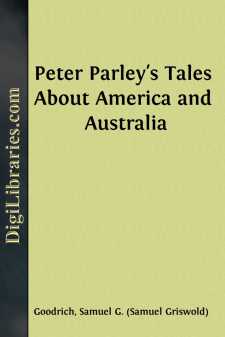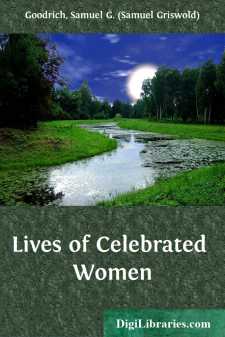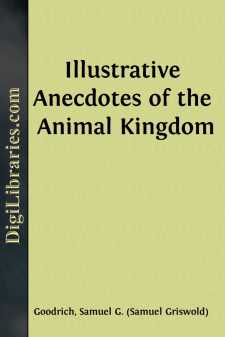Categories
- Antiques & Collectibles 13
- Architecture 36
- Art 48
- Bibles 22
- Biography & Autobiography 813
- Body, Mind & Spirit 138
- Business & Economics 28
- Children's Books 12
- Children's Fiction 9
- Computers 4
- Cooking 94
- Crafts & Hobbies 4
- Drama 346
- Education 46
- Family & Relationships 57
- Fiction 11821
- Games 19
- Gardening 17
- Health & Fitness 34
- History 1377
- House & Home 1
- Humor 147
- Juvenile Fiction 1873
- Juvenile Nonfiction 202
- Language Arts & Disciplines 88
- Law 16
- Literary Collections 686
- Literary Criticism 179
- Mathematics 13
- Medical 41
- Music 40
- Nature 179
- Non-Classifiable 1768
- Performing Arts 7
- Periodicals 1453
- Philosophy 64
- Photography 2
- Poetry 896
- Political Science 203
- Psychology 42
- Reference 154
- Religion 505
- Science 126
- Self-Help 81
- Social Science 81
- Sports & Recreation 34
- Study Aids 3
- Technology & Engineering 59
- Transportation 23
- Travel 463
- True Crime 29
Peter Parley's Tales About America and Australia
Categories:
Description:
Excerpt
CHAPTER I.
PARLEY TELLS HOW AMERICA WAS FIRST DISCOVERED, AND ABOUT COLUMBUS THE DISCOVERER.
Now that I have given you an account of European cities in my "Tales about Europe," I shall now furnish you with some description of America, with its flourishing cities, and its multitude of ships, its fertile fields, its mighty rivers, its vast forests, and its millions of happy and industrious inhabitants, of which I am quite certain you must be very curious to know something, when you are told that though the world has been created nearly six thousand years, and many powerful nations have flourished and decayed, and are now scarcely remembered, yet it is only three hundred and seventy years ago since it was known that such a country as America existed.
It was in the year 1492, which you know is only 370 years since, on the third of August, a little before sunrise, that Christopher Columbus, undertaking the boldest enterprise that human genius ever conceived, or human talent and fortitude ever accomplished, set sail from Spain, for the discovery of the Western World.
I will now give you a short account of Columbus, who was one of the greatest men the world ever produced. He was born in the city of Genoa, in Italy; his family were almost all sailors, and he was brought up for a sailor also, and after being taught geography and various other things necessary for a sea captain to know, he was sent on board ship at the age of fourteen. Columbus was tall, muscular, and of a commanding aspect; his hair, light in youth, turned prematurely grey, and ere he reached the age of thirty was white as snow.
His first voyages were short ones, but after several years, desiring to see and learn more of distant countries, and thinking there were still new ones to be discovered, he went into the service of the King of Portugal and made many voyages to the western coast of Africa, and to the Canaries, and the Madeiras, and the Azores, islands lying off that coast, which were then the most westerly lands known to Europeans.
In his visits to these parts, one person informed him that his ship, sailing out farther to the west than usual, had picked up out of the sea a piece of wood curiously carved, and that very thick canes, like those which travellers had found in India, had been seen floating on the waves; also that great trees, torn up by the roots, had often been cast on shore, and once two dead bodies of men, with strange features, neither like Europeans nor Africans, were driven on the coast of the Azores.
All these stories set Columbus thinking and considering that these strange things had come drifting over the sea from the west, he looked upon them as tokens sent from some unknown countries lying far distant in that quarter: he was therefore eager to sail away and explore, but as he had not money enough himself to fit out ships and hire sailors, he determined to go and try to persuade some king or some state to be at the expense of the trial.
First he went to his own countrymen the Genoese, but they would have nothing to say to him: he then submitted his plan to the Portuguese, but the King of Portugal, pretending to listen to him, got from him his plan, and perfidiously attempted to rob him of the honour of accomplishing it, by sending another person to pursue the same track which he had proposed....





